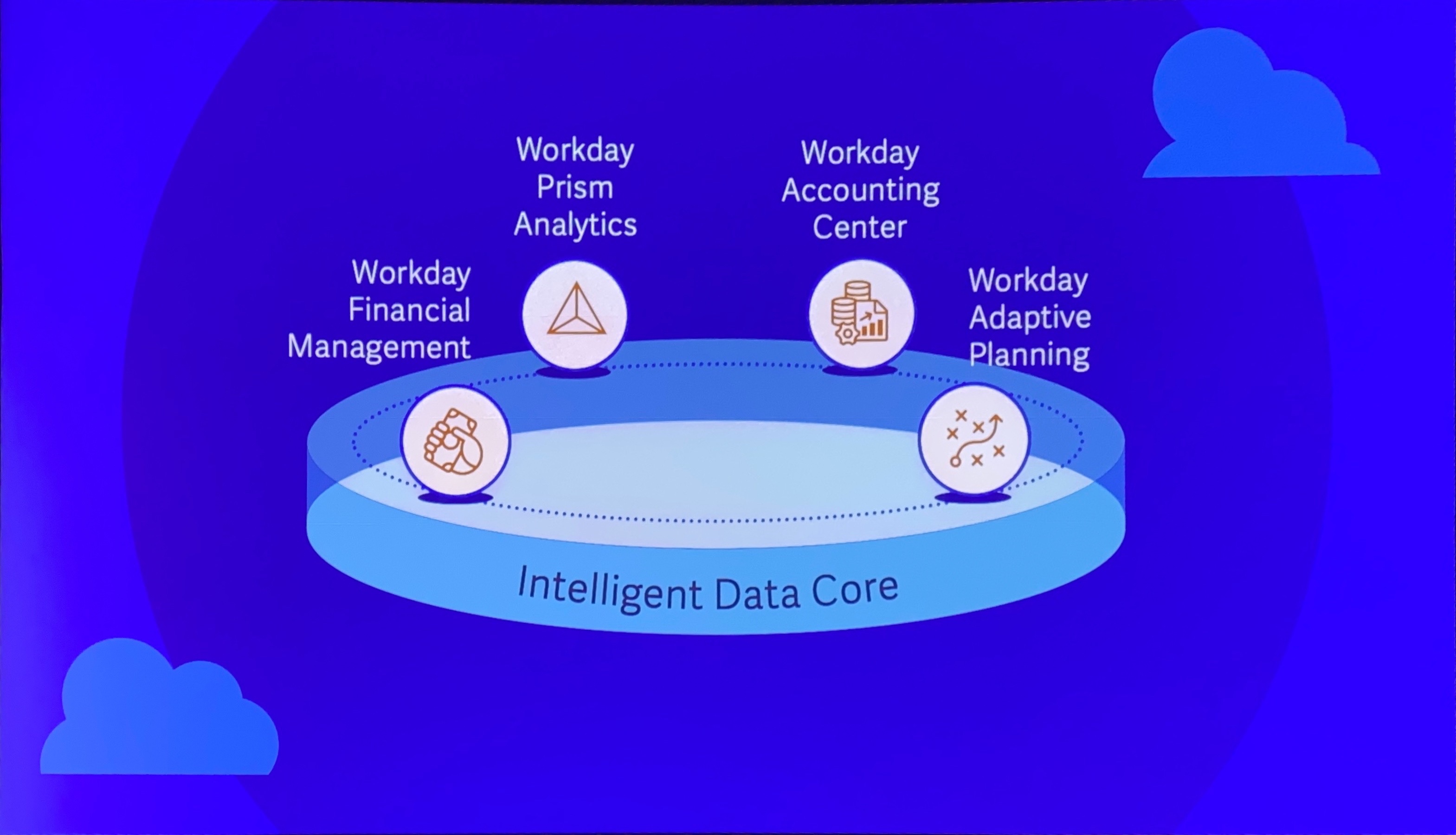Workday executives and customers detailed the evolution of the company’s ‘plan, execute, analyze’ platform at Workday Rising 2022 in Orlando.
In what seems like a wrinkle in time, it has now been four years since Workday acquired Adaptive Insights (since renamed Workday Adaptive Planning). Funny how a pandemic can help to make time fly.
Flash forward to Workday Rising 2022, September 12-14 in Orlando, Fl, and it’s a good time to evaluate progress on the integration of Workday Adaptive Planning (Adaptive) with the rest of Workday, particularly its core Financial Management (ERP) and Human Capital Management (HCM) apps. Indeed, Adaptive has put the “plan” in what Workday now bills as its “plan, execute, analyze” platform.
The headline from Rising where Adaptive was concerned was the announcement of ML Forecaster, a machine-learning-based feature that promises to automatically generate forecasts based on historical as well as third-party data, such as weather data or labor statistics. Workday has been working on this feature for more than a year, according to executives, and it’s co-innovating with a handful of customers in a beta period that’s expected to extend into the first half of next year.
One such beta customer, Team Car Care, a major Jiffy Lube franchisee based in Irvine, TX, is said to be using a blend of historical and weather data with ML Forecaster in order to predict daily oil-change traffic at specific locations as well as related staffing and stocking requirements.
It's early days for ML Forecaster, which isn’t expected to be generally available until next year. The feature will cover a broad set of use cases across finance, in contrast to the single use case supported by Intelligent Demand Forecasting, introduced in 2021. Other ML/time-series-based capabilities supported by Adaptive include Outlier Reporting, introduced in 2020, and Anomaly Detection, added in 2018 before Workday’s acquisition.
Workday isn’t the only vendor in the planning space adding ML-based features. We’ve seen ML-based “augmented” features added by Planful and Anaplan, among others. The theme is invariably around enabling and empowering operational and financial planners to get more work done and to be more predictive. In Workday’s case, common, platform-based ML capabilities are also being developed and applied to the vendor’s ERP and HCM apps (which are covered by my colleagues R “Ray” Wang and Holger Mueller, respectively).
Workday Integration and Adoption

According to Workday Co-CEO Chano Fernandez, 75% of Workday Financial Management customers have embraced Workday Adaptive Planning.
As for the progress in Adaptive’s integration with the rest of Workday and Workday customer adoption, executives were (predictably) upbeat. During an analyst Q&A session, co-CEO Aneel Bhusri told me that the number of Workday Adaptive Planning customers now stands at about 6,000, up from around 3,800 at the time of the acquisition. He didn’t say how many of those are Workday customers that have added Adaptive, but Co-CEO Chano Fernendez noted that nearly 75% of Workday Financial Management customers have Workday Adaptive Planning. What’s more, he noted that the ability to support workforce planning and financial planning with Adaptive has provided a “halo effect” that’s increasing Workday’s win rate in competitive deals for new customers.
In conversations with customers, there were some complaints that a few basic aspects of integration between Adaptive and the Workday core are still in progress. User setup and administration, for example, still happens separately between Adaptive and other Workday apps, and in some cases, duplicate data entries are required. Bhusri acknowledged that integration work continues, but larger initiatives, such as Workday’s move into public clouds from Workday own data centers, may have to happen first. Workday Adaptive Planning continues to run on Amazon Web Services rather than on Workday’s cloud.
On future app ties, Sayan Chakraborty, Executive Vice President, Product and Technology, said that work is underway to integrate Adaptive with the Workday Skills Cloud. “We see interesting synergies for skills planning and learning planning [with Adaptive] as well as staffing of projects,” Chakraborty said.
As for the continuing appeal of Adaptive as a stand-alone offering, Bhusri noted ExxonMobil as recent major customer win for Workday Adaptive Planning (without the use of any other Workday apps). Before the acquisition, Adaptive Insights was popular mostly with midsized companies, but ExxonMobil’s selection validates scale and performance improvements that Workday has brought to the platform since the acquisition to better serve its large enterprise customers.
Doug’s take: I’m seeing good progress overall for Adaptive under Workday, though the pace of integration has been, in some regards, methodical. Are emerging ML-based features moving the needle for customers? I’d say it’s still early days -- across the industry and all planning/performance management vendors -- on how heavily financial and operational leaders are counting on ML-based features and forecasts. You hear about good use cases, but I haven’t read or had an opportunity to write case studies (nor have I seen SuperNova Awards nominations) featuring computer-augmented planning capabilities. I welcome vendors and practitioners alike to share their ML success stories.


0 Commentaires